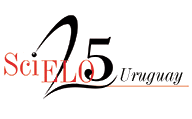The new view of Mesoamerican land and the Maya ruins through the drawings of the English artist Frederick Catherwood
DOI:
https://doi.org/10.25185/3.2Keywords:
travels, travel writing, XIX century, imagesAbstract
The present work intends to investigate the construction of a new vision about Mesoamerica from the images produced by the English artist
Frederick Catherwood during his trip through the Central American lands in the middle of the 19th century, accompanied by John Lloyd Stephens.
Through the artist’s biography, recovering the importance of travel and his writings from the first contacts between Europe and America, and reviewing the journey made by these two characters, we will focus on the analysis of the images published in 1844 under the title of Views of Ancient Monuments in Central America, Chiapas and Yucatan. With this work we seek to recover the importance of this artist in the history of the
contacts between Europe and America and the subsequent exploration of the American territories from new paradigms that gave more value to
American antiquity.
Downloads
References
Aguirre, Robert D., Informal Empire: Mexico and Central America in Victorian Culture, Minneapolis: University of Minnesota Press, 2005.
Baudez, Claude y Sidney Picasso, Lost cities of the Maya, Londres: Thames & Hudson, 1992.
Bourbon, Fabio. The lost cities of the Mayas: the Life, Art, and Discoveries of Frederick Catherwood. México: Artes de México, 1999.
Brunhouse, Robert. En busca de los Mayas: los primeros arqueólogos. México: Fondo de Cultura Económica, 2013.
Catherwood, Frederick. Views of Ancient Monuments in Central America, Chiapas and Yucatan. Londres: F. Catherwood, 1844.
Colombi, Beatriz. “El Viaje y su Relato”. Latinoamérica. Revista de Estudios Latinoamericanos, n°43, (2006): 11-35.
Comment, Bernard. The Panorama. Chicago: University of Chicago Press, 2004.
Depetris, Carolina. El héroe involuntario. Fréderic de Waldeck y su viaje por Yucatán. México: Universidad Nacional Autónoma de México, Centro Peninsular en Humanidades y Ciencias Sociales, 2014.
___. “El relato de viaje moderno: ¿posmodernidad escondida?”. Cuadernos del CILHA 14, n° 19 (2013): 109-126.
___. “El orientalismo como episteme: Frédéric de Waldeck y las ruinas mayas”, en HiN – Revista Internacional de Estudios Humboldtianos, XI: 21 (2010): 10-23.
___. (ed.) Viajeros por el mundo maya, Universidad Nacional Autónoma de México, Mérida, 2010.
Duviols, Jean Paul. “Visión primitiva del Nuevo Mundo según los viajeros europeos”. En 1492 Dos mundos, paralelismos y convergencias. XII Coloquio Internacional de Historia del Arte. México: UNAM, 1991.
Evans, R. Tripp. Romancing the Maya: Mexican Antiquity in the American Imagination, 1820-1915. Austin: Univesity of Texas Press, 2004.
Galindo, Juan, “Memoire de M. Juan Galindo officier superieur de la republique de l’Amerique centrale, sur les ruines de Palenque”, en Bulletin de la Société de géographie de Paris, n° 18 (1832):198-214.
Kingsborough, Edward King, Antiquities of Mexico, 7 vols, Londres: R, Havell, J.Moyes & R. Taylor,1831.
Landa, Diego de, Relación de las cosas de Yucatán. Estudio preliminar, cronología y revisión del texto María del Carmen León Cázares, México: Conaculta, 2003.
Morley, Sylvanus G., The Inscriptions At Copan, Washington DC: Carnegie Institute, 1920.
Penhos, Marta. “Viajes, viajeros e imágenes: una relación necesaria”. En Travesías de la imagen. Historias del arte en la Argentina, editado por María Isabel Baldasarre y Silvia Dolinko. Vol. 2. Buenos Aires: Centro Argentino de Investigadores de Arte/ EDUNTREF, Archivos del CAIA IV, 2012.
___. Ver, conocer, dominar. Imágenes de Sudamérica a fines del siglo XVIII. Buenos Aires: Siglo XXI Editores, 2005.
Pillsbury, Joanne (ed.), Past presented: archaeological illustration and the ancient Americas, Washington D.C: Dumbarton Oaks, Harvard Univ. Press, 2012.
Pratt, Mary Louise, Ojos imperiales. Literatura de viajes y transculturación, México: Fondo de Cultura Económica, 2010.
Ranking, John, “Remarks on the Ruins at Palenque, in Guatemala, and on the Origin of the American Indians”, en Quarterly Journal of Science, Literature and Art, Londres (1828):135-154.
Rebok, Sandra. “La expedición americana de Alexander Von Humboldt y su contribución a la ciencia del siglo XIX”. Bulletin de l´Institu Francais d´Etudes Andines 32, n°3 (2003): 441-458.
Río, Antonio del, Description of the Ruins of an Ancient City, Discovered Near Palenque, in the Kingdom of Guatemala, in Spanish America: Translated from the Original Manuscript Report of Captain Don Antonio del Rio: Followed by Teatro Critico Americano; or, A Critical Investigation and Research into the History of the Americans, by Doctor Paul Felix Cabrera, of the City of New Guatemala, Londres: Henry Berthoud ed., 1822.
Schele, Linda y Mary Miller. The blood of Kings: dynasty and ritual in Maya art. Nueva York: George Braziller, 1992.
Schnapp, Alain (Ed.), World Antiquarianism: Comparative Perspectives, Los Angeles: The Getty Research Institute, 2013.
Todorov, Tzvetan. Las morales de la historia. Barcelona: Paidós, 1993.
Von Hagen, Víctor. F. Catherwood, architect-explorer of two worlds. Barre: Barre Publishers, 1968.
___. Explorador maya. John Lloyd Stephens y las ciudades perdidas de América central y Yucatán. Buenos Aires: Librería Hachette, 1957.
Von Kugelgen, Helga. “El indio: ¿Bárbaro y/o buen salvaje?”. En La imagen del indio en la Europa moderna, AA.VV. Sevilla: Consejo Superior de Investigaciones Científicas, 1990.
Waldeck, Jean-Frederic, Voyage pittoresque et archéologique dans la province d’ Yucatan pendant les années 1834 et 1836, París: Bellizard Dufour et cie, 1838.
Published
How to Cite
Issue
Section
License
Copyright (c) 2018 Estefanía Sol Blasco Dragun

This work is licensed under a Creative Commons Attribution 4.0 International License.



























 This work is under a
This work is under a 